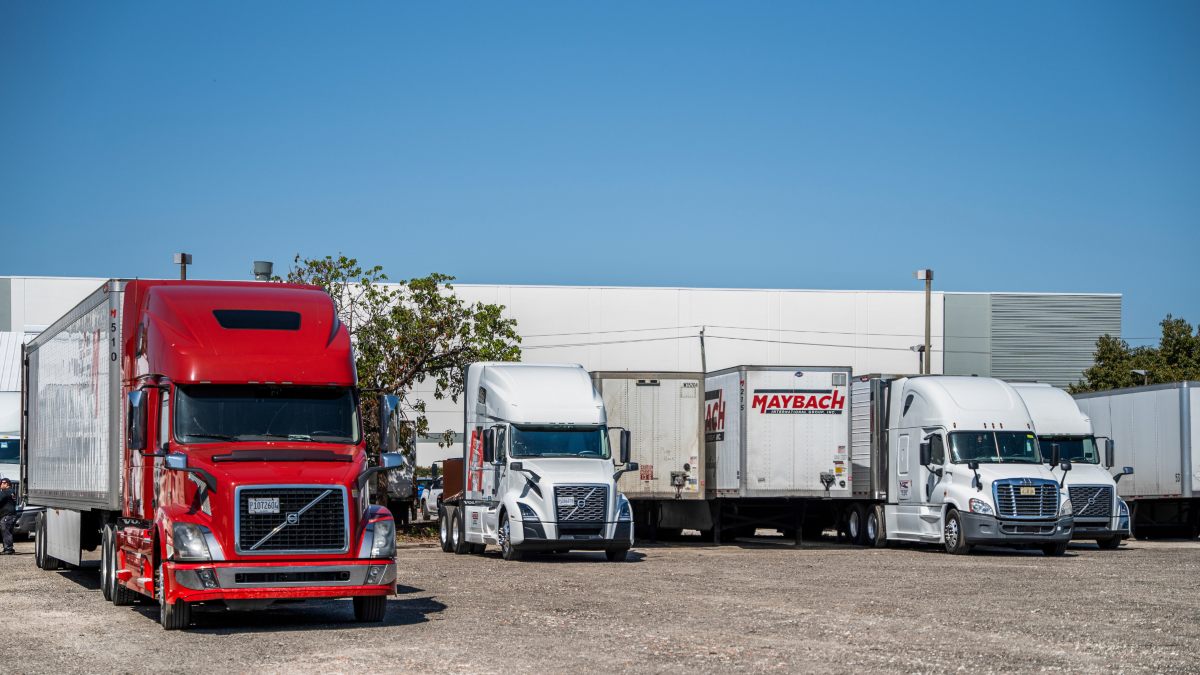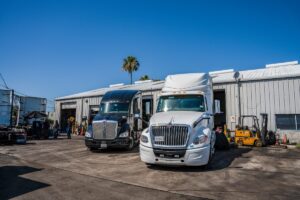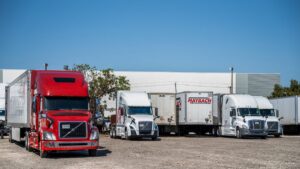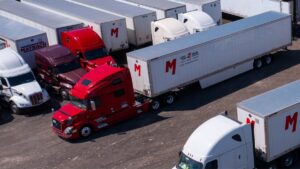In the dynamically evolving logistics landscape, the trucking industry is indispensable, driving the global economy forward by ensuring the timely and efficient delivery of goods. Entrepreneurs eyeing this sector must prioritize the creation of a detailed and robust trucking business plan. Such a plan not only serves as a blueprint for navigating the complexities of the industry but also as a beacon, guiding the business towards long-term success and sustainability. This comprehensive guide aims to equip aspiring business owners with the knowledge and tools necessary to develop a strategic business plan tailored specifically to the unique demands and opportunities of the trucking industry.
Understanding the Market
Creating a successful trucking business plan hinges on a deep understanding of the market. This crucial first step involves a detailed exploration of the trucking industry’s status quo, discerning emerging trends, and comprehending the competitive landscape. Entrepreneurs must keenly identify niche opportunities where their venture can shine, particularly in areas like dedicated trucking services or specialized freight, where demand is on the rise and competition may be less fierce.
Industry Insights
The trucking sector’s trajectory is closely tied to economic trends, regulatory shifts, and technological progress. An in-depth industry analysis is instrumental in predicting demand and sculpting achievable objectives. The surge in e-commerce, for instance, has significantly ramped up the need for dependable freight services, creating fresh opportunities for both budding and seasoned market players. This landscape is further shaped by technological innovations, from advanced fleet management tools to eco-friendly transportation solutions, offering avenues for differentiation and efficiency optimization.
Target Market
The essence of your trucking business’s success lies in accurately defining your target market. This step transcends simple identification; it demands an intimate understanding of potential clients’ logistics requirements, preferences, and challenges. Whether servicing local businesses with ongoing logistics needs or catering to national corporations seeking specialized freight solutions, customizing your services to address these specific demands can distinguish your business in a crowded marketplace. Tailoring your approach not only positions you as a preferred service provider but also fosters customer loyalty and sets a solid foundation for sustainable growth.
Business Model and Services
Defining your business model is a pivotal step in mapping out your trucking company’s journey. It involves specifying the range of services you plan to offer, such as long-haul freight, regional deliveries, or dedicated trucking services. Each type of service comes with its own set of operational requirements and caters to different market needs, making it essential to choose those that align with your business goals and capabilities.
Core Services
It’s vital to clearly articulate the services your trucking business will provide. Whether your focus lies in general freight services or more specialized transport options, a well-defined service catalog is instrumental in attracting your ideal customer base. Providing clear, detailed descriptions of your offerings sets the right expectations and lays the groundwork for successful client relationships.
Value Proposition
Determining what distinguishes your trucking business in the marketplace is crucial. Your unique value proposition could be a commitment to on-time deliveries, outstanding customer service, or perhaps innovative logistics solutions that address specific industry pain points. Identifying and communicating this unique selling point is fundamental to standing out in a competitive landscape, offering clients a compelling reason to choose your services over others.
Financial Planning
Essential to any trucking business plan is a thorough financial planning segment. This must encapsulate the initial investment needed for fleet acquisition, securing insurance, and covering licensing fees. Moreover, it’s important to delineate various revenue sources, such as direct client contracts and partnerships with third-party logistics providers, to facilitate accurate financial projections.
Startup and Operating Costs
A clear understanding of the financial outlay required to kickstart and maintain your trucking operation is critical. This encompasses not just the one-off purchases like vehicles and insurance but also the recurrent expenses associated with vehicle upkeep, fuel consumption, and insurance premiums. Accurate estimation of these costs is fundamental to setting a sustainable pricing strategy and ensuring long-term operational feasibility.
Revenue Projections
Crafting realistic revenue forecasts demands a deep dive into market analysis, service pricing strategies, and the identification of prospective client agreements. This step is indispensable for assessing the economic sustainability of your trucking venture, guiding investment decisions, and strategizing for growth. A well-founded revenue projection offers a glimpse into the business’s potential profitability, informing both short-term financial management and long-term strategic planning.
Compliance and Regulations
Ensuring compliance with the regulatory framework of the trucking industry is essential. This vital component of your business plan needs to comprehensively detail all required licenses, permits, and insurance policies necessary for legal operation and protecting your enterprise.
Legal Requirements
A thorough understanding of regulations at both federal and state levels is key for legal compliance. This knowledge not only prevents legal infractions and potential business interruptions but also solidifies your company’s reputation for reliability and adherence to industry standards. Understanding these requirements is fundamental to ensuring your trucking business operates smoothly and remains on the right side of the law.
Operational Plan
A well-devised operational plan is central to the functionality and efficiency of a trucking business, encompassing fleet management, logistics, and the integration of technology. It sketches out the strategies for fleet oversight, optimizing route planning, and the application of tech solutions to boost operational productivity.
Fleet Management
Effective fleet management is key to maintaining high service standards and reducing vehicle downtime. It includes careful vehicle acquisition, regular maintenance, and strategic vehicle deployment. These actions are critical for ensuring reliability and efficiency in service delivery.
Technology and Logistics
The adoption of advanced logistics software and technology is transformative, streamlining operations, improving cargo tracking, and elevating customer satisfaction levels. Technologies such as various routing softwares and comprehensive management systems are instrumental in modernizing trucking operations, enhancing the accuracy and efficiency of logistics services.
Marketing and Growth Strategy
Your marketing strategy should focus on building a strong brand presence and establishing a solid customer base. This encompasses online and offline marketing efforts, from a well-designed website to networking within industry circles.
Digital Presence
In the digital age, a compelling online presence can significantly enhance your trucking business’s visibility. Leveraging social media, SEO, and digital advertising can attract potential clients and build lasting relationships.
Expansion Plans
Growth strategies may include diversifying service offerings, expanding into new markets, or scaling the fleet size. Strategic partnerships and investments in technology can also propel business growth.
Conclusion
Launching and nurturing a trucking business is an endeavor that demands careful planning, precise strategic implementation, and ongoing flexibility. Understanding the intricacies of market trends, adhering to regulatory standards, and incorporating technological advancements are all fundamental components in establishing a thriving and enduring trucking enterprise. Entrepreneurs poised to enter this sector are advised to embrace these guidelines and approaches, positioning themselves effectively for prosperity within the dynamic landscape of the trucking industry.







